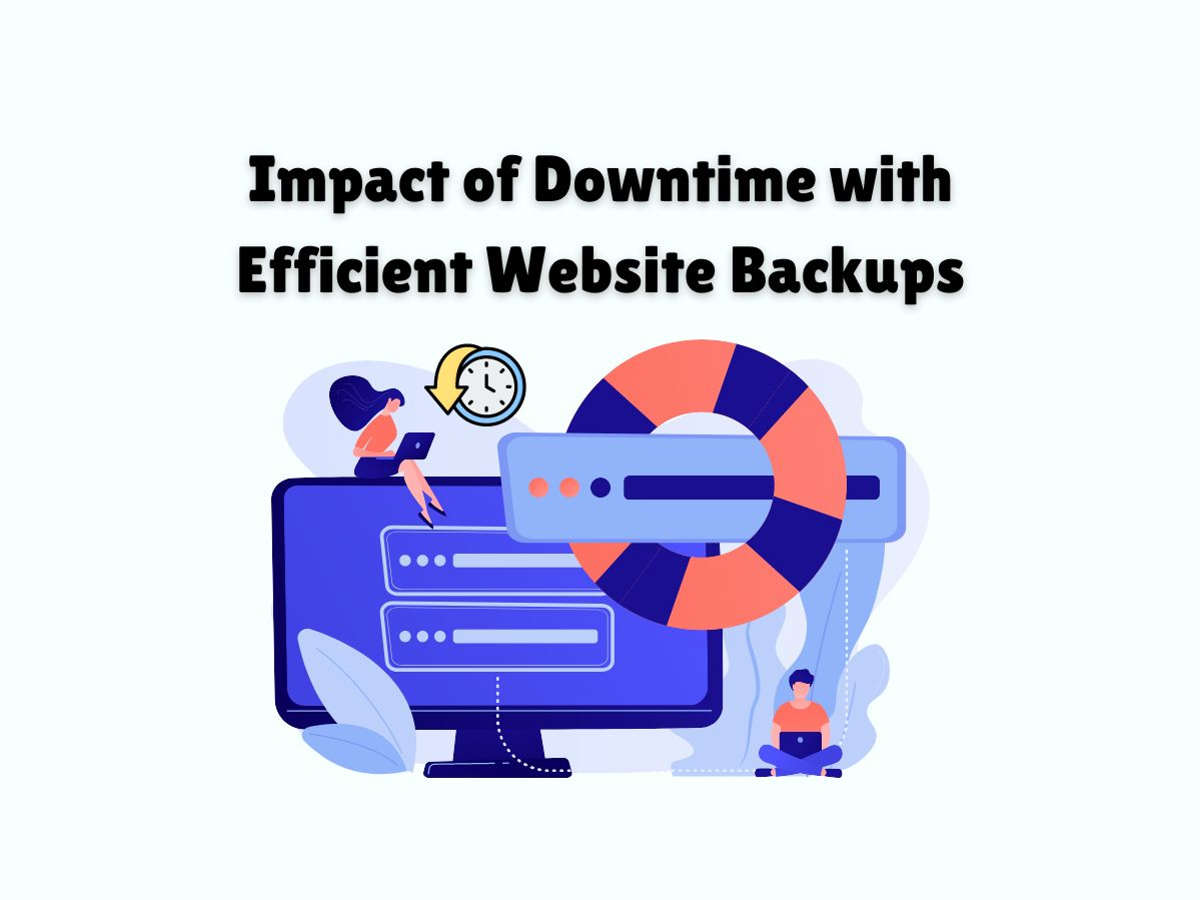
Mitigating the Impact of Downtime with Efficient Website Backups
As the Internet continues to transform the business landscape, website interruptions can spell disaster, impacting your business’s credibility and bottom line. In this hyper-digital age, where downtime can cost businesses thousands, if not millions, of dollars, having an efficient backup and recovery plan becomes vital.
In today’s blog, we will explore how efficient website backups can help mitigate the impact of downtime and ensure business continuity.
Understanding Website Downtime
Downtime refers to periods when your website is inaccessible to users due to various reasons, such as server failures, network interruptions, data corruption, or cyberattacks. Regardless of the cause, every moment of downtime equates to a possibility of lost revenue, unhappy customers, and a dent in your corporate reputation.
The Role of Website Backups
Conducting regular website backups is like having an insurance policy for your online business. A website backup is a replica of your site content, held securely for restoration purposes. This could include everything from website code and database files to multimedia content.
If your business experiences unplanned downtime, an up-to-date backup can be used to restore your website quickly, mitigating the potential damage and cost associated with prolonged downtime.
How Website Backups Mitigate the Impact of Downtime
1. Quick Recovery
An efficient backup solution allows businesses to recover quickly following a disaster. By restoring your website from the most recent backup, you can get your website running again in a fraction of the time it would take to rebuild it from scratch.
2. Data Loss Prevention
Data is an invaluable asset in today’s digital age. A data loss incident due to downtime can be catastrophic for businesses. Regular website backups ensure that even in the event of such unexpected occurrences, your data remains secure, helping your business return to normalcy quickly.
3. Saving Business Reputation
Frequent downtime and data loss incidents can tarnish your business image and customer trust. Quick recovery from backups can help maintain business continuity, thereby safeguarding your business reputation and customer confidence.
Best Practices for Effective Website Backups
Here are some best practices to make your website backups more efficient:
Regularly Update Backups: Ensure backups are made regularly to capture the most recent changes to your website.
Off-Site Backups: Store your backups off-site or on the cloud, so they are not affected if your primary server fails.
Automate the Process: Automate the backup process to reduce the scope for human error and ensure routine backups.
Test Your Backups: Regularly test your backups to confirm their seamless restoration capability.
Conclusion
In conclusion, creating regular, efficient website backups can significantly help mitigate the impact of downtime. It provides a solid foundation for your business continuity strategy, enabling you to respond swiftly and effectively to any incidents that could bring your site down.
Remember, downtime can hit any business at any time, and the best defense is always a robust, reliable backup plan. Invest in an optimal backup solution and ensure your business thrives, come what may!







